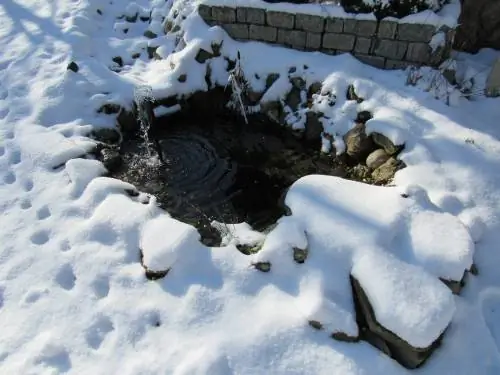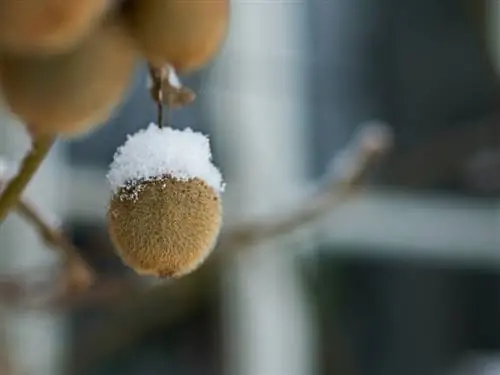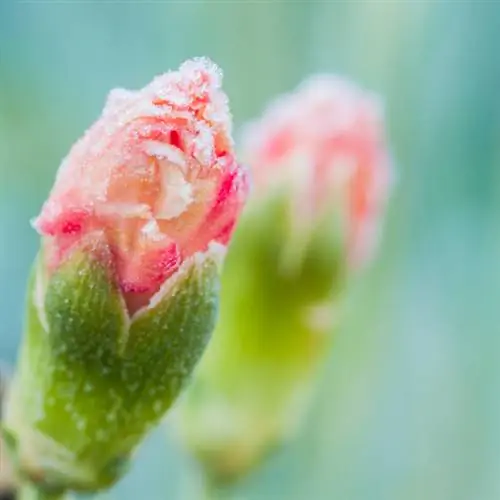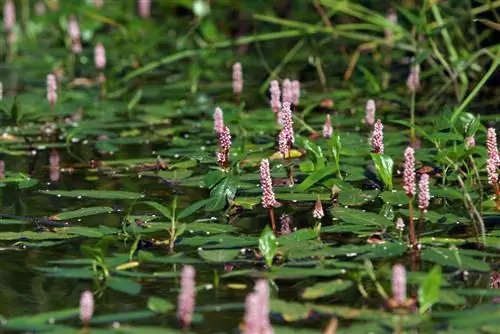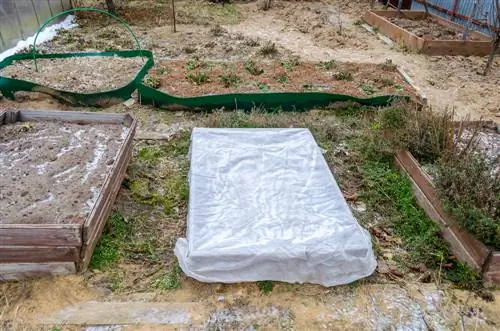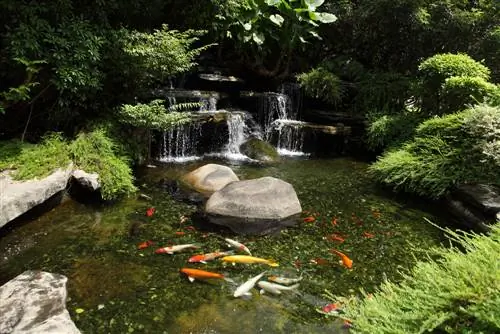- Author admin leonars@hobbygardeners.com.
- Public 2023-12-16 16:46.
- Last modified 2025-01-23 11:22.
In autumn you not only have to prepare the garden, but also your garden pond for the cold season. In this article you will find out what work is necessary so that plants and animals get through the winter well.
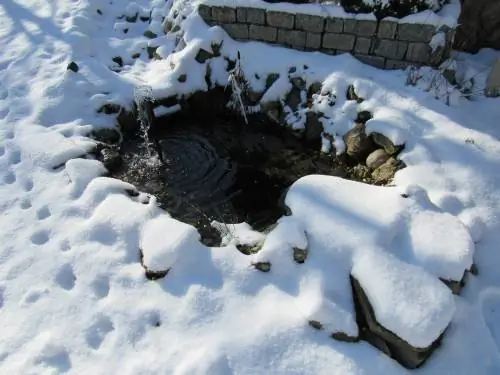
How can I prepare my garden pond for winter?
To make a pond winter-proof, you should remove dead plant parts and filamentous algae, fish leaves and branches out of the pond, use an ice preventer and move sensitive fish into the aquarium. This minimizes the risk of foul gas formation and oxygen deficiency.
Why does the garden pond need to be winterized?
The main problem in the winter months is foul gases that arise from the decomposition of organic material. If the pond freezes over, the oxygen under the water quickly becomes scarce due to the excess of methane gas and hydrogen sulfide. Bacteria that decompose the plant parts compete for the remaining oxygen and, in the worst case, the water can even overturn. Frogs, fish, snails and other aquatic creatures would die.
Which works are important?
- Remove dead plant parts.
- Thread algae should also be fished out at this opportunity.
- Pick out leaves and branches that have fallen into the pond before they sink to the bottom.
- You can stretch a net over the pond to protect it from leaves.
Sludge deposits have already formed in older ponds. Remove about a third of this with a special vacuum cleaner for garden ponds. Examine the mud carefully and put any creatures in it back into the pond. Mulm is an excellent fertilizer and can be added to the beds.
Are the fish allowed to overwinter in the pond?
So that the pond inhabitants feel comfortable even in winter, the water should be at least 80, and preferably even 120, centimeters deep. This allows the aquatic animals to retreat to deeper areas where the average temperature is four degrees.
If you want your fish to remain in the garden pond, you must ensure that the water surface never completely freezes over. Therefore, use an ice preventer (€18.00 at Amazon).
Give the fish special winter food in autumn so that they can build up energy reserves for the cold season. As soon as the temperature drops below ten degrees, you should stop feeding because the animals begin hibernation.
Which fish need to be in the aquarium?
Goldfish and robust species can easily overwinter in the garden pond. Sensitive species such as cardinals or veil-tailed fish, however, should move into an aquarium at the beginning of winter.
The location of the pool should be frost-free but not too warm. You should also offer the fish enough space and equip the aquarium with a powerful pump and some plants.
Tip
If an ice cover forms despite all precautionary measures, you must under no circumstances hack it up. This would massively disrupt the fish's hibernation. It is better to slowly create an opening for the ice preventer with warm water.

